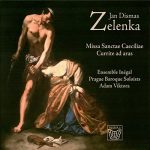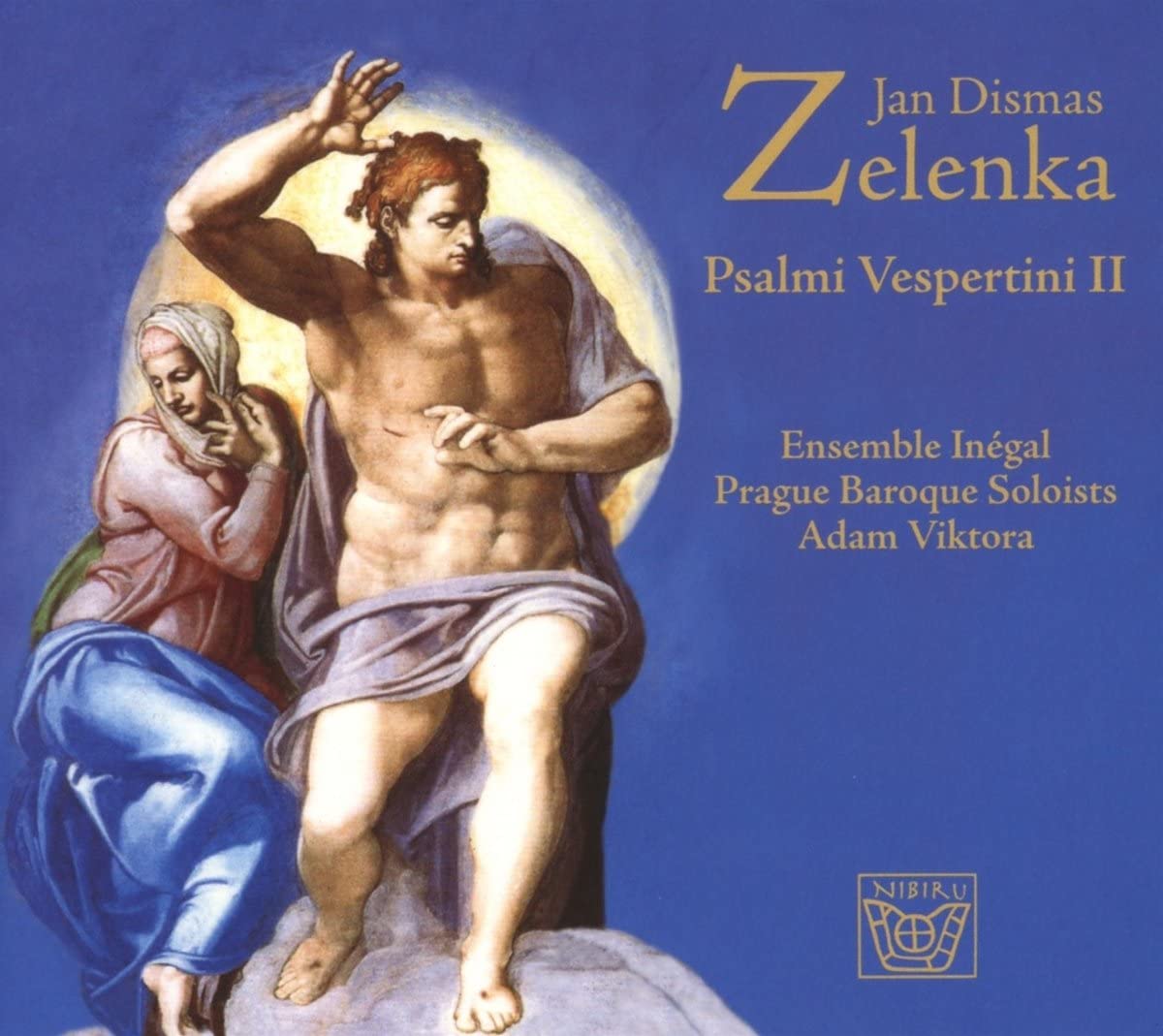Psalmi Vespertini II
[Lenka Cafourková, Gabrielia Eibenová, Filippo Mineccia, Tobias Hunger, Marián Krejčík, Jiří Miroslav Procházka] Ensemble Inégal, Prague Baroque Soloists, Adam Viktora
65:29
Nibiru 01632231
Click HERE to buy this on amazon – it will keep the site alive!
There can be few champions of a composer’s music as Adam Viktora: his passion for and wonderful, insightful performances of Jan Dismas Zelenka’s output just keep coming. And this is a clear case of quanlity rather than quantity. The fertile imagination from which all this energetic, emotion-laden, technically perfect, lyrical material sprung defies categorising: he is as at home writing a gallant air with flutes as he is composing a fugue that would have satisfied both Fux and Bach, and his ideas just never seem to tire or overstay their welcome. For this programme, Viktora has combined three previously heard works with five world premieres (ZWV 85, 88, 92, 96 and 104) and, such is the quality, it’s difficult to hear the joins. The soloists, choir and orchestra give glorious accounts of themselves. I would not be without this recording!

Psalmi Vespertini III
[Lenka Cafourková, Gabrielia Eibenová, Pascal Bertin, Marián Krejčík] Ensemble Inégal, Prague Baroque Soloists, Adam Viktora
56:47
Nibiru 01642231
Click HERE to buy this on amazon – you know you should!
Four of the seven psalms on this disc are recorded for the first time. The texts reveal that the Dresden Catholic Chapel must have observed the more unusual Vespers rites: Zelenka only set Confitebor Angelorum once. The recording also features the composer’s only (surviving) a cappella psalm, In convertendo. Typically, this sort of recording would be scooped up only by “completists”, but such is the quality of the music and the performances (and Jan Stockigt’s typically informative booklet notes) that I feel obliged to recommend this to everyone, especially choral directors who are looking for new repertoire that their singers will love.

Psalmi Varii Separatim Scripti
[Lenka Cafourková, Gabrielia Eibenová, Filippo Mineccia, Tobias Hunger, Marián Krejčík, Jiří Miroslave Procházka] Ensemble Inégal, Prague Baroque Soloists, Adam Viktora
57:52
Nibiru 01652231
Click HERE to buy this recording at amazon
Four of the eight psalms on this disc are also recorded for the first time. The title comes from Zelenka’s catalogue of his own music from 1726. In her excellent booklet note, Jan Stockigt suggests that the arrival in April 1730 of a group of Italian singers might have lit Zelenka’s creative flame once more and that the more virtuosic of the pieces here (Laudate pueri and Læatatus sum) were written for them. The less-demanding repertoire, she argues, were intended for the Czech choir boys who sang in the Dresden chapel. Whoever sang them, these are – I know I keep saying the same thing! – marvellous examples of Baroque psalm settings; some are through composed, meaning conceived as a single movement, while others break the texts down into “chunks” and give each a different character. Zelenka is the master of both, and Viktora and his forces are the masters of Zelenka. The combination is electric and addictive!

Missa Sanctae Caeciliae | Currite ad aras
[Gabrielia Eibenová, Kai Wessel, Tobias Hunger, Marián Krejčík, Jaromír Nosek] Ensemble Inégal, Prague Baroque Soloists, Adam Viktora
57:52
Nibiru 01672231
Click HERE to buy this on amazon – you seriously won’t regret it!
In some ways, I have saved the best till last. The very first entry in the ZWV catalogue of the composer’s works, this mass is truly glorious. Every single aspect of Zelenka’s output is here – the jaunty rhythms, the intense harmonies, the soaring high vocal lines, the unimaginably long fugue subjects. Viktora and his forces rise to the various challenges with class – it feels slightly unfair to highlight one singer’s contribution, but Gabrielia Eibenová’s Benedictus is ravishing, as is her contribution to the earworm that is the Gloria in excelsis. Tobias gives her a run for her money in his aria “Tu, qui es plenus Spiritus” from the Marian offertory, Currite ad aras (ZWV 166).
I have spent a lot of time with these four discs (and many others by the same forces) and I seriously cannot recommend them enough. The recorded sound is crystal clear and natural, the booklets are beautiful as well as informative, and the whole experience is one of wonder. I don’t know what I will do when they stop producing new recordings of this gorgeous music!
Brian Clark
